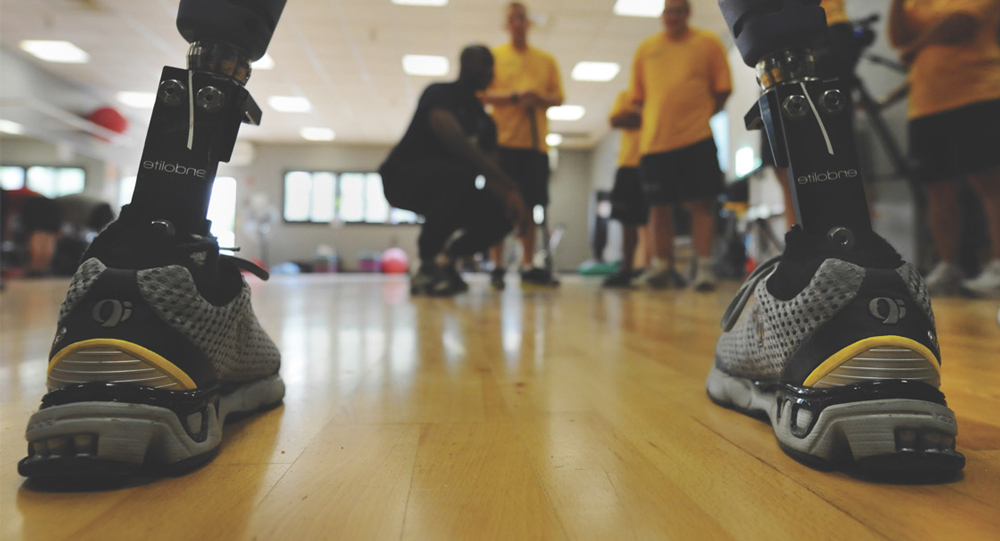Advances in technology and medicine have improved the military’s ability to stabilize injured service members and transport them to specialized military centers in the U.S. This has led to higher survival rates in recent military operations than in past conflicts. As a result, servicemen and women are returning from warfare with combat-related injuries that require extensive rehabilitation at a higher frequency than previous conflicts, historically. A significant portion of these wounds involve musculoskeletal damage, spinal cord injury (SCI) and traumatic brain injury (TBI).
Between 2002 and 2017, the Military Health System diagnosed more than 200,000 active-duty service members with posttraumatic stress disorder (PTSD) and nearly 300,000 with a traumatic brain injury (TBI), according to the most recent RAND study (2021). Currently, more than 1,687 individuals have experienced major limb loss resulting from battle injuries sustained in these conflicts, with nearly 31 percent of these service members suffering the loss of multiple limbs.
Severe orthopedic trauma sustained in combat often coincides with neurological or psychological injuries, which require complex rehabilitation strategies for many service members. Further complicating this process is that patients who have sustained limb loss often experience phantom limb pain (PLP) and are at an increased risk for long-term injuries such as osteoarthritis, osteoporosis, and neck and back pain. It is imperative to provide optimal rehabilitative care for the thousands of injured U.S. military personnel and to continue to research and evaluate treatment strategies within the rehabilitative sciences.
Service members’ relative youth and high fitness level enable the rehabilitative process to occur in a more aggressive and accelerated fashion. In turn, the Center for Rehabilitation Sciences Research (CRSR) currently aims to advance the field of rehabilitation by overcoming the limitations of existing clinical strategies and prosthetic/orthotic technologies.
CRSR is headquartered at the Uniformed Services University of the Health Sciences (USU) in Bethesda, Maryland. The mission of USU is to support the readiness of America's Warfighter and the health and well-being of the beneficiary community by educating and developing uniformed health professionals, scientists and leaders; by conducting cutting-edge, military-relevant research; by leading the MHS in key functional and intellectual areas; and by providing operational support to units around the world.
General Inquiries
Stacey Harcum
Senior Operations Manager
The Henry M. Jackson Foundation for the Advancement of Military Medicine (HJF) employee
collaborating with The Center for Rehabilitation Sciences Research (CRSR)
Assisstant Professor, Department of Physical Medicine and Rehabilitation
Uniformed Services University of the Health Sciences
stacey.harcum.ctr@usuhs.edu
(301) 550-0495
Media Inquiries
Sharon K. Holland
Deputy Vice President for External Affairs
Uniformed Services University of the Health Sciences
sharon.holland@usuhs.edu
301-295-3578
